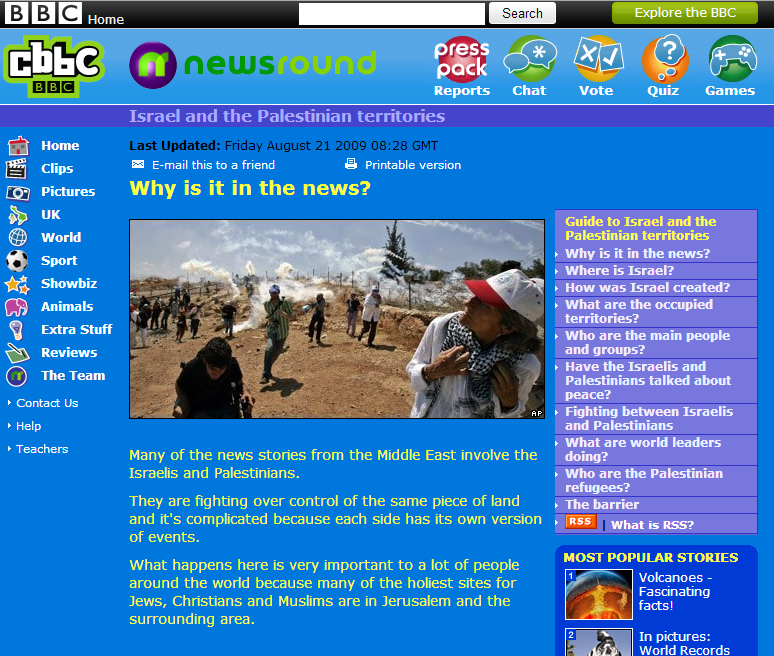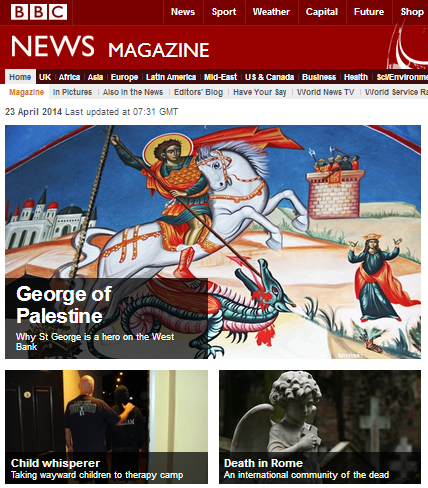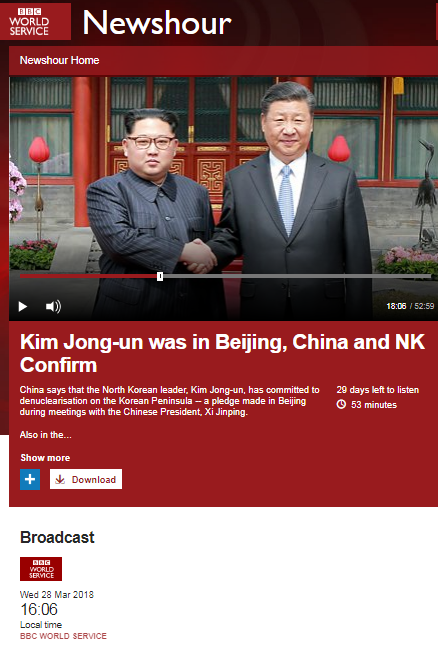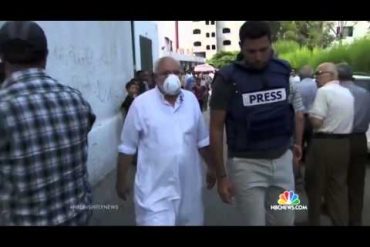As documented here earlier this month, the BBC began telling its audiences that the US president had ruined Christmas for Palestinians just hours after his announcement recognising Jerusalem as the capital of Israel was made on December 6th.
At the same time, multiple BBC platforms promoted copious numbers of reports and news bulletins claiming that the US statement would spark violent reactions that were portrayed as being inexorable and irresistible. When reporting on rioting and other acts of violence, including missile fire at civilian communities in Israel, the BBC made sure that audiences were told that ‘reason’ for the violence was Donald Trump’s announcement – rather than the choices made by the people who chose to engage in such acts of violence.
Two and a half weeks later, we see that the BBC is still perpetuating those themes in its Christmas reporting from Bethlehem.
Listeners to the December 24th edition of the BBC Radio 4 religious affairs programme ‘Sunday‘ heard a report from the Jerusalem bureau correspondent Yolande Knell (from 14:47 here) that was introduced by presenter Edward Stourton with a dollop of political messaging.
Stourton: “Later this morning the head of the Latin Catholic church in Jerusalem will, in accordance with tradition, set off on a journey to Bethlehem where he’ll celebrate midnight mass tonight. Bur these days the route means he’ll have to go through Israel’s West Bank separation barrier: a reminder that even at Christmas the politics of the place aren’t far away.”
Yolande Knell told listeners that:
Knell: “Santa hat sellers are out in force and all around me there’s a riot of multi-coloured lights. But something is missing: the tourists. Many have cancelled their planned visits here in just the past few weeks because of growing unrest. There have been days of clashes by an Israeli military watchtower built into the high wall at the edge of Bethlehem: part of Israel’s separation barrier. Young Palestinians throw stones and Israeli soldiers fire tear gas. Similar scenes have unfolded at other flashpoints across the West Bank.
While Israel welcomed Donald Trump’s decision to recognise Jerusalem as its capital, saying this reflected Jewish history and the modern reality, Palestinians are furious. They want occupied East Jerusalem to be the capital of their promised future state and say the US has disqualified itself as a mediator for peace talks.
[sound of church bells] Back by the Nativity Church I’ve been talking to local Christians. One woman spoke of her frustration after her son and his family – who live overseas – decided at the last minute not to come home for Christmas, fearing trouble. And a hotelier complained that Bethlehem got all dressed up for Christmas and all of a sudden the streets are empty.”
In a filmed report that appeared on the BBC News website on December 24th under the title “Bethlehem celebrates Christmas amid heightened tensions” Jerusalem bureau correspondent Tom Bateman told audiences:
Bateman: “Well the crowds have turned out in their hundreds for the day but the numbers are much lighter than in previous years. And that’s because tourism has taken a severe dent here because of fears over clashes that have taken place in the last few weeks in the occupied West Bank ever since Donald Trump announced that the US officially recognised Jerusalem as the capital of Israel.”
The synopsis to another filmed report – “Bethlehem Christmas: Church of the Nativity hosts pilgrims” – posted in the early hours of December 25th tells BBC audiences that:
“Fewer people than usual were in the West Bank town because of increased tensions between Palestinians and the Israeli army since US President Donald Trump recognised Jerusalem as the capital of Israel.”
Interestingly, BBC Christmas reporting from Bethlehem has in previous years also included comment on the number of tourists visiting the town. BBC audiences have repeatedly been told sad tales of dwindling crowds that have been attributed to a variety of (inevitably Israel related) factors.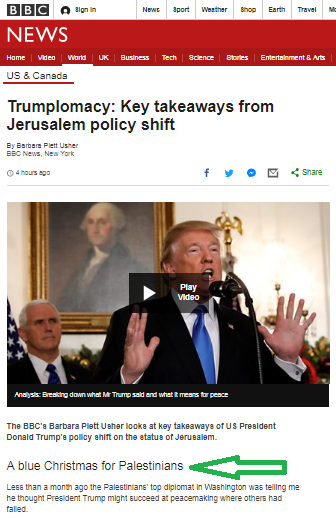
For example, in 2012 BBC audiences heard that:
“We understand around 70,000 people will have visited Bethlehem by the end of the day – those numbers actually down on last year, we think, by around 40,000 or so. So some concerns about the economy and tourism here…”
“And Christmas is also big business here – or it should be. But this year not everyone is buying. The Palestinian economy is struggling.”
“Actually Bethlehem is not doing well economically. It suffers from a high rate of unemployment, suffers from the occupation.”
In 2015 BBC audiences were told of “dampened” celebrations that were attributed to a wave of Palestinian terrorism that was portrayed by the BBC in euphemistic language – with no mention of the Palestinian Authority’s instructions to limit celebrations.
“Celebrations are taking place in the West Bank town where it is believed that Jesus was born. However this year they are overshadowed by the latest Israeli-Palestinian violence that shows no signs of abating. […] Like many Palestinian Christians, Mary thinks the holiday spirit is dampened this year and that festivities will be relatively low-key.”
And:
“Even as visitor numbers continue to dwindle Christmas upon Christmas, this year the reason is pretty clear: the tensions that have washed over Israel and the occupied territories show no sign of abating.”
However this year it’s not ‘the occupation’, ‘the wall’ or ambiguous ‘tensions’ that have caused allegedly low numbers of visitors to Bethlehem at Christmas: this year the BBC has decided that the blame should be laid at the door of Donald Trump.
However, one BBC programme went a little off message– as we will see in part two of this post.
Related Articles:
Documenting five years of BBC politicisation of Christmas
Palestinian falsehoods on Christianity amplified by BBC’s Plett Usher
The BBC, violence and promotion of linkage – part one
The BBC, violence and promotion of linkage – part two

